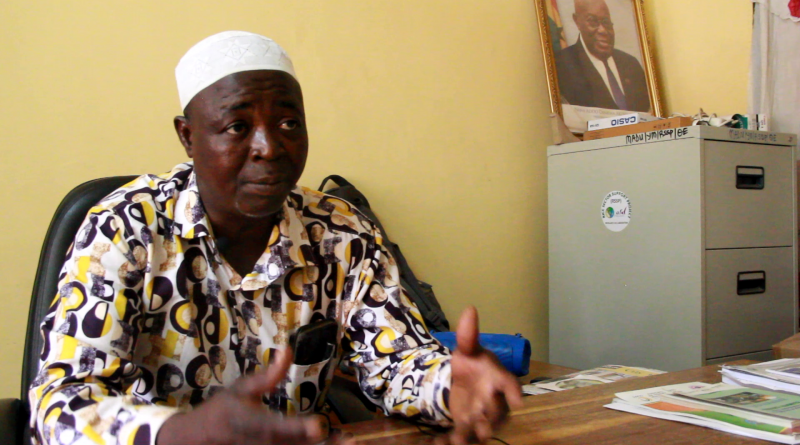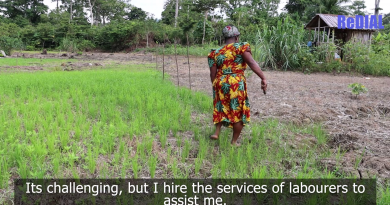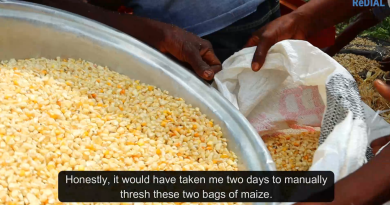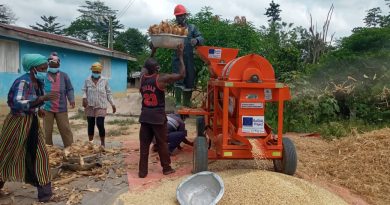“ReDIAL project will reduce post-harvest losses”-Yendi Municipal Agric Director
The Municipal Director of Agriculture in Yendi in the Northern Region of Ghana, Alhaji Zakaria Fusheini has said that the piloting of the ReDIAL project funded by the European Union in the municipality, when successfully implemented will help deal with post-harvest losses facing smallholder farmers in the municipality. The losses, according to Mr. Fusheini, are due to the absence of post-harvest technologies and climate change. He was full of praise for the ReDIAL Project, fully funded by the European Union (EU) and being implemented by with Friends of the Nation (FoN), the Faculty of Renewable Natural Resources of KNUST, Tropenbos Ghana, SAYeTECH Company and SESI Technologies. Apart from supplying two multi-crop threshers to five identified farming zones in Ghana to thresh grains and cereals for marginalized farmers are also providing soil research to aid food production.
In an interview with ReDIAL Communications, Mr. Fusheini said, one of the challenges in Yendi is the high post-harvest losses. If there were post- harvest technologies that would help harvest and thresh the crops on time, and guarantee quality grains, I believe strongly that most of these crops wouldn’t go bad. Due to the high post-harvest losses, our activities have been geared towards the small holder farmer, and so we are excited the ReDIAL Project has also come and is targeting small holder farmers with technology that could help deal with post-harvest losses”. The Yendi Municipal is known for the production of maize, rice, millet, soybeans, cowpea, groundnuts, yam, cassava and cowpea etc. In 2020, the municipality, according to Mr. Alhaji Zakaria Fusheini produced over 30 metric tons of maize. The losses were also due to the “dodgy” nature of the known rainfall patterns.
Mr. Fusheini narrated the effect of climate change on farming activities in the Yendi Municipal when he stated that “the very indigenous farmers will always allow the crops to some extent overstay in the farms, and it leads to the serious post-harvest losses we are currently experiencing. We have been telling them that at a particular moisture content, they should harvest. But only a few farmers will listen. If you ask why, they tell you they want to ensure proper drying in sync with the long known tradition”.
He concluded that “but we cannot predict the climate. Climate change has taken us by surprise. Farmers will always say if I leave my crops to dry for the period of days, I will get this quality of maize. But to their surprise, the rains will extend at the time we’ve known by our traditional calendar to have stopped, and by extension, it means the rains are going to beat those crops on the field for unanticipated periods. Our farmers respond by harvesting their grains in moldy condition. This compromises the quality of the grains. As a result, most of MoFA’s outreach programs and campaigns are towards mobilizing the little that they are able to produce, to prevent post-harvest losses.
Mr. Fusheini lauded the EU for the ReDIAL initiative and stated it will augment the initiative the Municipal Agriculture Directorate was putting in place to reduce post-harvest losses for small holder farmers.




